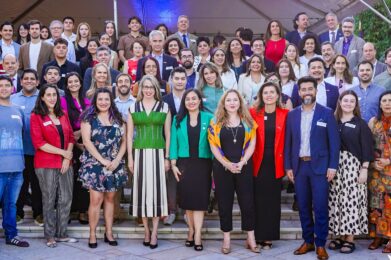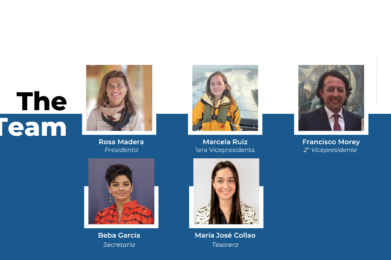
June 10, 2021
by Felipe Paredes Vargas, PHD, Marine Biologist, Fulbright Fellow 2005. On the occasion of World Ocean Day 2021.
The ocean provides innumerable benefits to human beings in ecosystem goods and services of great economic, social, environmental and cultural importance. Since ancient times, human beings have had a vital relationship with the oceans as a source of food, recreation, transportation, inspiration for artistic creation and even religiosity. Today, millions of people live close to the coast and make their living from fishing and aquaculture, tourism, and shipping, all of which depend on the health of marine ecosystems and the biodiversity that sustains them. Furthermore, we now know that the oceans play a fundamental role in regulating the climate; they are the great absorbers of the extra heat produced by humans, they capture carbon dioxide and produce great part of the oxygen that we breathe.
Despite the importance of the ocean, we have abused their benefits, with many of the activities of human beings that threaten the health of the oceans and their biodiversity. In Chile, currently more than 50% of the main fisheries are overexploited or collapsed, in such emblematic resources as hake, pippin, golden conger eel, and Spanish sardines. Clearly a bad deal.
On the other hand, a quarter of aquaculture centers between 2012 and 2019, have exceeded the carrying capacities of marine systems, with anaerobic conditions on their seabed, being almost 50% in some regions. Plastics in the sea are concentrated in the great South Pacific gyre and are deposited on beaches from north to south, at Anakena beach in Rapa Nui. Oil pollution, invasive alien species, ship collisions with whales are just other of these threats that we must manage.
In this sense, Chile has institutions and public policies whose objectives include promoting the sustainability of the activities carried out in the ocean, developing instruments for the protection and conservation of marine ecosystems and their biodiversity, together with improvements to level of decision-making and ocean governance. However, despite these efforts, there are still significant pressures on the use of marine and natural resources, which, when not properly managed, translate into conflicts between users and threats to biodiversity.
Protecting and conserving marine resources is imperative and a key feature of a sustainable future. A breakthrough solution in recent years has been the creation of marine-protected areas, in ecosystems of high biodiversity in Patagonia, but mainly in oceanic islands such as Rapa Nui, the Juan Fernández archipelago, and the Desventuradas Islands. In total, Chile today protects 42% of its exclusive economic zone, in more than 30 marine protected areas. It is also essential to raise awareness about the role of the oceans and the need for sustainable human activities to ensure food security and prosperity of coastal communities, moving towards a blue economy.
It is also imperative to achieve a new governance model for marine ecosystems, which integrates the various actors and their visions, in a participatory, integrative scheme, based on scientific and traditional knowledge, that achieves long-term sustainability objectives, for the good of the oceans, for the good of all.
«Despite these efforts, there are still significant pressures on the use of marine and natural resources, which, when not properly managed, translate into conflicts between users and threats to biodiversity.»





